Slava Ukraini! In early 2022 I began a Telegram channel aggregating news from a number of sources daily on the war in Ukraine. In June 2023 I began providing a daily draft for the Ukraine War Brief Podcast collecting news from over 70 sources daily, which formed the basis of the script. While the Podcast no longer exists I have continued to make this Brief available for my followers here on Substack for those who wish to keep up with the news from the war.
All the latest news on the Russo-Ukraine War 6 days per week
ALONG THE CONTACT LINE
GSAFU Morning Report
For: Mar 17, 2025
The General Staff of the Armed Forces of Ukraine in its Operational Information update at 08:00 on Mar 17 stated that day 1118 of the full-scale invasion of the Russian Federation against Ukraine had begun.
The situation on the line of combat remains tense in some sectors. Ukrainian defenders continue to actively counteract the Russian aggressor, causing them significant losses in personnel, equipment and technology. Exhausting the enemy along the entire front line and continuing to disrupt the plans of Russian occupiers to advance deeper into the territory of Ukraine.
During the past two days, 260 combat engagements took place.
Over the past 48 hours, the enemy carried out 1 missile strike, 179 air strikes, used 5,269 drones and fired approximately 11,794 artillery shells across the positions of Ukrainian forces and civilians.
Air Force Daily Report
47 ENEMY UAVS SHOT DOWN, 33 SIMULATOR UAVS FAILED TO REACH THEIR TARGETS (LOCATIONALLY LOST)
➖➖➖➖➖➖➖➖➖
On the night of Mar 16, 2025 (from 6:30 p.m. on Mar 15), the enemy attacked with 90 Shahed attack UAVs and simulator drones of various types from the following directions: Millerovo, Bryansk, Shatalovo, Primorsko-Akhtarsk - Russia, Chauda - Crimea.
The air attack was repelled by anti-aircraft missile troops, electronic warfare units, and mobile fire groups of the Air Force and Defense Forces of Ukraine.
As of 09:00, it has been confirmed that 47 Shahed attack UAVs and drones of other types have been shot down in Kharkiv, Poltava, Sumy, Cherkasy, Kyiv, Zhytomyr, Dnipropetrovsk, Donetsk and Odessa regions.
33 enemy drone simulators were lost in location (without negative consequences).
The Chernihiv, Kyiv, Kharkiv, and Odessa regions were affected by the Russian attack.
90 ENEMY UAVS SHOT DOWN, 70 SIMULATORS DID NOT REACH THEIR TARGETS (LOCATIONALLY LOST)
➖➖➖➖➖➖➖➖➖
On the night of Mar 17, 2025 (from 7:30 p.m. on Mar 16), the enemy attacked with 174 Shahed-type strike UAVs and simulator drones of various types from the directions: Orel, Shatalovo, Kursk, Bryansk, Primorsko-Akhtarsk - Russia.
The air attack was repelled by aviation, anti-aircraft missile troops, electronic warfare units, and mobile fire groups of the Air Force and Defense Forces of Ukraine.
As of 09:00, it has been confirmed that 90 Shahed attack UAVs and drones of other types have been shot down in Kharkiv, Poltava, Sumy, Chernihiv, Cherkasy, Kyiv, Kirovohrad, Dnipropetrovsk, Zaporizhia and Odessa regions.
70 enemy drone simulators were lost in location (without negative consequences).
The regions of Odessa, Kharkiv, Dnipropetrovsk, Kirovohrad, Sumy, Chernihiv, and Kyiv were affected by the Russian attack.
Combat Operations in the Kursk Sector, Russian Federation
The Institute for the Study of War (ISW), a US based think tank, in its Mar 16 Russian Offensive Campaign Assessment reported that Russian forces continued ground operations to push Ukrainian forces from their remaining positions in Kursk Oblast on Mar 16 but did not make confirmed advances.
The Russian commander claimed that withdrawing Ukrainian forces are operating 300-400 drones in the brigade's area of responsibility (AoR) and that Russian recruits need better anti-drone training to prepare them to counter Ukrainian drones. The commander suggested that Ukrainian forces maintain "low-altitude air superiority" in Kursk Oblast despite Russian forces having established air superiority at higher altitudes using traditional systems, a phenomenon which appears to be common along a large portion of the frontline. ISW previously noted that military forces may struggle to establish and maintain low-altitude air superiority as low-altitude drone threats become increasingly prevalent in modern warfare.
The Khortytsia operational-strategic group
(Responsible for the northeastern part of Ukraine. )
Sumy Sector: Russian forces recently advanced in northern Sumy Oblast.
Geolocated footage published on Mar 15 indicates that Russian forces marginally advanced in western Basivka (northeast of Sumy City).
Borova Sector: Ukrainian forces recently advanced in the Borova direction.
Geolocated footage published on March 15 indicates that Ukrainian forces recently advanced in southern Nadiya (east of Borova).
The Tavria operational-strategic group
(Responsible for the central-eastern and southeastern part of Ukraine.)
Velyka Novosilka Sector: Russian forces recently advanced in the Velyka Novosilka direction.
Geolocated footage published on Mar 16 indicates that Russian forces advanced in the fields south of Vesele (north of Velyka Novosilka).
The Odesa operational-strategic group
(Responsible for Kherson, Qırım, (also known as Crimea) and the Black Sea.)
There have been no major changes to the combat environment since our last report.
TEMPORARILY OCCUPIED TERRITORIES
Nothing major to report.
THE HOME FRONT
Zelenskyy has signed a law permitting Ukrainian troops to operate abroad during martial law.
President Volodymyr Zelenskyy has signed a law allowing Ukraine's Armed Forces to be sent abroad during martial law, according to an official decree published on Mar 17, the Kyiv Independent reported.
The law aims to enhance defense cooperation with partner nations, particularly by enabling Ukrainian forces to participate in training and receive military equipment, lawmaker Oleksii Honcharenko explained.
"This will allow us to attract international support to strengthen Ukraine's defense faster and more effectively," Honcharenko posted on Telegram.
The legislation permits Ukrainian military units to be deployed to other countries for national security purposes, including repelling armed aggression, protecting sovereignty and territorial integrity, and exercising the right to self-defense under international law.
The law does not concern the deployment of Ukrainian troops for combat operations on Russian territory.
The decision to send military personnel abroad will be made by the president but requires approval from the Verkhovna Rada, the country's parliament. Deployments will be subject to a formal request detailing the mission's objectives, troop numbers, weaponry, and the conditions of their stay abroad.
Zelenskyy vetoed the bill in January and returned it to parliament with amendments clarifying the decision-making process and ensuring compliance with international law. Lawmakers approved the revised version in late February.
Kyiv reportedly extradites German suspected of rape who fought for Ukraine.
Ukraine is extraditing a German citizen who fought in Ukraine's Defense Forces and is suspected of rape and other crimes, Suspilne reported on March 17, citing sources in the Prosecutor General's Office.
Ben R. is suspected of rape in Germany and Ukraine, as well as possessing and distributing images of sexual violence, including those involving children, according to the BBC. The German citizen reportedly fought for Ukraine between 2022 and 2024.
German prosecutors requested his extradition twice in late 2023, but Ukrainian authorities took the step only a year later, in December 2024. Ben R. was reportedly arrested in Sumy Oblast a month later and left Ukraine via the Polish border on March 17 to stand trial in Germany, the BBC reported.
Ben. R reportedly appealed the decision twice, but both times with procedural violations, leading to the court rejecting the appeals.
German prosecutors allegedly possess video evidence of Ben R. raping women, including two Ukrainians, one of whom is a minor. Both of them confirmed this during a pre-trial investigation by Ukrainian prosecutors, though the underage girl later withdrew her testimony, the BBC wrote.
The suspected rape of a minor remains under investigation.
RUSSIAN WORLD
Ukrainian Drones Strike Gas Processing Plant Near Astrakhan.
Late on Mar 16th, Ukrainian long-range attack drones targeted a facility of the energy supply system of Russia, located in the Astrakhan Region, approximately 900 km deep beyond the frontline. According to the local governor Igor Babushkin, the UAVs were intercepted, but "debris caused fire" on the ground, Defense Express reports.
The fact of the drone attack on Astrakhan was also confirmed by Lieut. Andrii Kovalenko, Head of the Center for Countering Disinformation, a Ukrainian state-run media agency.
As reported by Liga.net, Russia’s Defense Ministry claimed six Ukrainian drones were downed Sunday evening across Volgograd, Rostov, and Tula oblasts, but "conspicuously omitted" from the reporting the Astrakhan Region and Krasnodar Krai where residents heard multiple explosions.
Unofficial information suggests that the target was Gazprom's Astrakhan Gas Processing Plant, a facility spanning almost 4 sq. km.
While the details are yet being clarified, Defense Express reminds that the Astrakhan plant has previously suffered from Ukrainian drone attacks. On Feb 3, it was lit on fire after a midnight onslaught of kamikaze drones.
The plant is one of the largest in Russia, with an annual processing output of 10 billion cubic meters of natural gas and 3.5 million tons of gas condensate. The end products include gasoline, diesel fuel, and more. The profits generated by this enterprise are used to fuel the Russian war machine.
RELATED INTERNATIONAL NEWS
New Canadian PM discusses security guarantees, bilateral cooperation in call with Zelenskyy.
Newly elected Canadian Prime Minister Mark Carney discussed Canada's support for Ukraine in a phone call with President Volodymyr Zelensky, the Presidential Office reported on Mar 16.
Carney was sworn in as Canada's prime minister on Mar 14, replacing former Prime Minister Justin Trudeau as head of the governing Liberal Party. Trudeau announced his resignation in Jan.
The leaders discussed increasing pressure on Moscow, particularly by imposing new sanctions against Russia's banking sector and its so-called "shadow fleet" of oil tankers. They also spoke about security guarantees for Ukraine, including Canada's commitment to providing economic support after the war ends.
Carney and Zelensky also discussed defense cooperation and the possibility of joint production of long-range weapons and electronic warfare equipment.
Canada recently participated in the "coalition of the willing" virtual summit convened by U.K. Prime Minister Keir Starmer on Mar 15. Following the conference, Canada reiterated his support for Ukraine in a post on Twitter."Canada supports the proposal for an immediate ceasefire in Ukraine," Carney wrote."Now, Russia must stop stalling and launching its attacks. It's time for Russia to come to the table in good faith."
Carney said his country remains "Ukraine's steadfast ally" and is committed to lending Kyiv "the military support it needs to defend itself — now and into the future."
Under Trudeau's leadership, Canada was a strong ally of Ukraine, providing 19.5 billion Canadian dollars ($13.5 billion) in assistance, including 4.5 billion Canadian dollars ($3.1 billion) in military aid.
Prior to the Mar 15 summit, Canada also signalled its willingness to partake in a potential peacekeeping mission in Ukraine.
Carney, a former central banker, is widely expected to trigger a general election in the coming weeks. Canada is required to hold a general election no later than Oct. 20.
Trump to speak with Putin on Tuesday about ending war in Ukraine.
U.S. President Donald Trump said he plans to speak to Russian President Vladimir Putin on Tuesday and discuss ending the war in Ukraine, after positive talks between U.S. and Russian officials in Moscow. Reuters reports.
"We want to see if we can bring that war to an end," Trump told reporters on Air Force One during a flight back to the Washington area from Florida. "Maybe we can, maybe we can't, but I think we have a very good chance.
"I'll be speaking to President Putin on Tuesday. A lot of work's been done over the weekend."
Trump is trying to win Putin's support for a 30-day ceasefire proposal that Ukraine accepted last week, as both sides continued trading heavy aerial strikes through the weekend and Russia moved closer to ejecting Ukrainian forces from their months-old foothold in the western Russian region of Kursk.
When asked about what concessions are being considered in ceasefire negotiations, Trump said: "We'll be talking about land. We'll be talking about power plants...We're already talking about that, dividing up certain assets."
Trump did not elaborate but was most likely referring to the Russian-occupied Zaporizhzhia facility in Ukraine, Europe's largest nuclear plant. Russia and Ukraine have accused each other of risking an accident at the plant with their actions.
Kremlin spokesman Dmitry Peskov confirmed on Monday that Putin would speak with Trump by phone but declined to comment on Trump's remarks about land and power plants.
The Kremlin said on Friday that Putin had sent Trump a message about his ceasefire plan via U.S. envoy Steve Witkoff, who held talks in Moscow, expressing "cautious optimism" that a deal could be reached to end the three-year conflict.
In separate appearances on Sunday TV shows in the United States, Witkoff, Secretary of State Marco Rubio, and Trump's national security adviser, Mike Waltz, emphasized that there were still challenges to be worked out before Russia agrees to a ceasefire, much less a final peaceful resolution to the war.
Asked on ABC whether the U.S. would accept a peace deal in which Russia was allowed to keep stretches of eastern Ukraine that it has seized, Waltz replied, "Are we going to drive every Russian off of every inch of Ukrainian soil?" He added that the negotiations had to be grounded in "reality."
Rubio told CBS a final peace deal would involve "concessions from both Russia and Ukraine," and that it would be difficult to even begin those negotiations "as long as they're shooting at each other".
An overnight Ukrainian drone attack targeted energy facilities in Russia's southern Astrakhan region, injuring one person and sparking a fire, the regional governor said. Kyiv's mayor said on Monday Russia had carried out an overnight drone attack on the Ukrainian capital.
EU approves third $3.8 billion tranche for Kyiv under Ukraine Facility program.
Ukraine will receive 3.5 billion euros ($3.8 billion) after the Council of the EU approved the third installment of non-refundable grants and loans under the Ukraine Facility program, the Council announced on Mar 17, the Kyiv Independent reported.
With this disbursement, Ukraine will have received nearly 20 billion euros ($21.7 billion) under the Ukraine Facility since the program was launched in early 2024.
"The Council concluded today that Ukraine had satisfied the necessary conditions laid down in the Ukraine Plan in order to receive a third disbursement from the Ukraine Facility," the statement reads.
The Ukraine Plan outlines Kyiv's strategy for recovery, reconstruction, and modernization and a reform timetable as part of Ukraine's EU accession process over the next four years.
To qualify for this funding, Ukraine implemented 13 key reforms, including measures to boost renewable energy, strengthen the independence of the energy regulator, and streamline border-crossing procedures in line with EU standards.
The EU approved the four-year Ukraine Facility in February 2024, allocating 33 billion euros ($36 billion) in loans and 17 billion euros ($18 billion) in grants to support Ukraine's economy and reconstruction efforts.
Ukraine open to Russia sanctions relaxation as part of peace deal.
Western sanctions on Russia could ultimately be dropped if it helps deliver security and justice for Ukraine, Kyiv’s top sanctions official told POLITICO, as United States President Donald Trump steps up bilateral negotiations with Moscow in a bid to end the war. Politico reports.
Vladyslav Vlasiuk, President Volodymyr Zelenskyy’s commissioner for sanctions policy, said in an interview that a return to countries doing business with Russia in one way or another is simply “a matter of time,” but had to take place under the right conditions.
Economic restrictions, embargoes and bans on importing Russian energy, he said, “have their own objectives, which might be pushing Russia to stop its aggression and to make them make a deal on lasting peace,” rather than simply being a "punishment of any kind."
At present, the top official said, it is “premature to talk about what exact sanctions lifting should be part of any deals. We just want at this moment to make sure that first Russia makes significant steps in that direction, then any discussion about the lifting of sanctions emerges.”
“We’ve seen already that the Russians are trying to ask some questions [about] if those sanctions should be lifted, at least some of them, which gives us better understanding of what sanctions are most painful,” Vlasiuk went on. “It’s always good to know what is the most painful, and we have to use this leverage wisely.”
Russian leader Vladimir Putin is understood to be increasingly concerned about the state of his country’s beleaguered economy, having lost billions in oil and gas revenues from trade with the West, and seen businesses and skilled workers leave the country since ordering his catastrophic invasion three years ago.
According to Vlasiuk, who also serves as secretary of the International Working Group on Russian Sanctions, as part of any lasting agreement — which would have to ensure security guarantees for Ukraine — Kyiv would be seeking “justice for our people,” likely including “compensation for the Ukrainians” given the scale of the sacrifices they have made.
Trump has insisted that he will bring about an end to Russia’s war, while simultaneously cutting off aid to Ukraine — and threatening Moscow with new sanctions and tariffs if it doesn’t negotiate. The White House dispatched envoy Steve Witkoff to Moscow earlier this week and confirmed on Friday that he had spoken directly with Putin.
Ukraine’s President Zelenskyy, meanwhile, has publicly signed up to a proposed ceasefire, but warned that Putin is not interested in peace and called for tougher economic measures to force Russia to back down.
“Sanctions must be applied — ones that will work,” Zelenskyy said Thursday. “We will continue working with our American and European partners and with everyone in the world who wants peace — to force Russia to end this war.”
EU’s Kallas Conditions set by Russia show that it does not want peace.
The conditions set by Russia regarding the American proposal for a ceasefire give reason to doubt whether it wants peace. EU Foreign Affairs Council Chief of Mission Kaja Kallas stated prior to the start of the EU Foreign Affairs Council meeting, Censor.NET reported citing European Pravda.
"The conditions that they have put forward show that they do not really want peace, because they put forward as conditions all their ultimate goals that they want to achieve from the war," she added.
Kallas noted that the EU Council has many issues on its agenda, including Ukraine.
"We really welcome the Jeddah talks and their outcome. Now we need to really see that the ball is in Russia's court and what conditions they are putting forward, and this is a big question, whether they want peace," she said.
The Washington Post has published a document containing a list of Russia's demands to end the war in Ukraine. One of the main demands in the document is that a peaceful settlement of the war in Ukraine cannot take place before 2026. The document also contains proposals to strengthen Russia's negotiating position. It also proposes to normalise relations between Russia and the United States.
MILITARY & TECH
Germany delivers Gepard air defenses, shells, drones, other aid to Ukraine.
Germany has provided three additional Gepard anti-aircraft systems with 10,000 rounds of ammunition, 24 mine protection vehicles, and other defense aid to Ukraine in its latest round of aid deliveries, the Kyiv Independent reported citing an announcement on Mar 17.
Berlin is Ukraine's largest military donor in Europe, second only to the U.S. in terms of defense assistance provided.
The new delivery included 5,000 155 mm artillery shells, 2,000 122 mm shells, 8,000 120 mm mortar shells, and ammunition for Leopard 1 tanks, Marder infantry fighting vehicles, and IRIS-T air defense systems.
Ukraine has also received fresh support in unmanned systems, including 50 Vector reconnaissance drones, 30 Gereon RCS tracked drones, and 30 drone detection systems.
The latest tranche further included small arms, first aid kits, demining equipment, and border protection equipment.
Germany initially allocated around 4 billion euros ($4.36 billion) in defense assistance to Ukraine in 2025. Outgoing Chancellor Olaf Scholz held up an additional 3 billion euros ($3.27 billion) proposed by his coalition partners, but his incoming successor, Friedrich Merz, pledged to push the package through.
That’s it for today’s Brief folks if you would like to keep up with events in Ukraine daily please consider subscribing, it’s free!


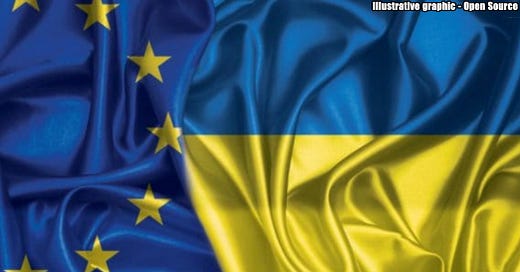




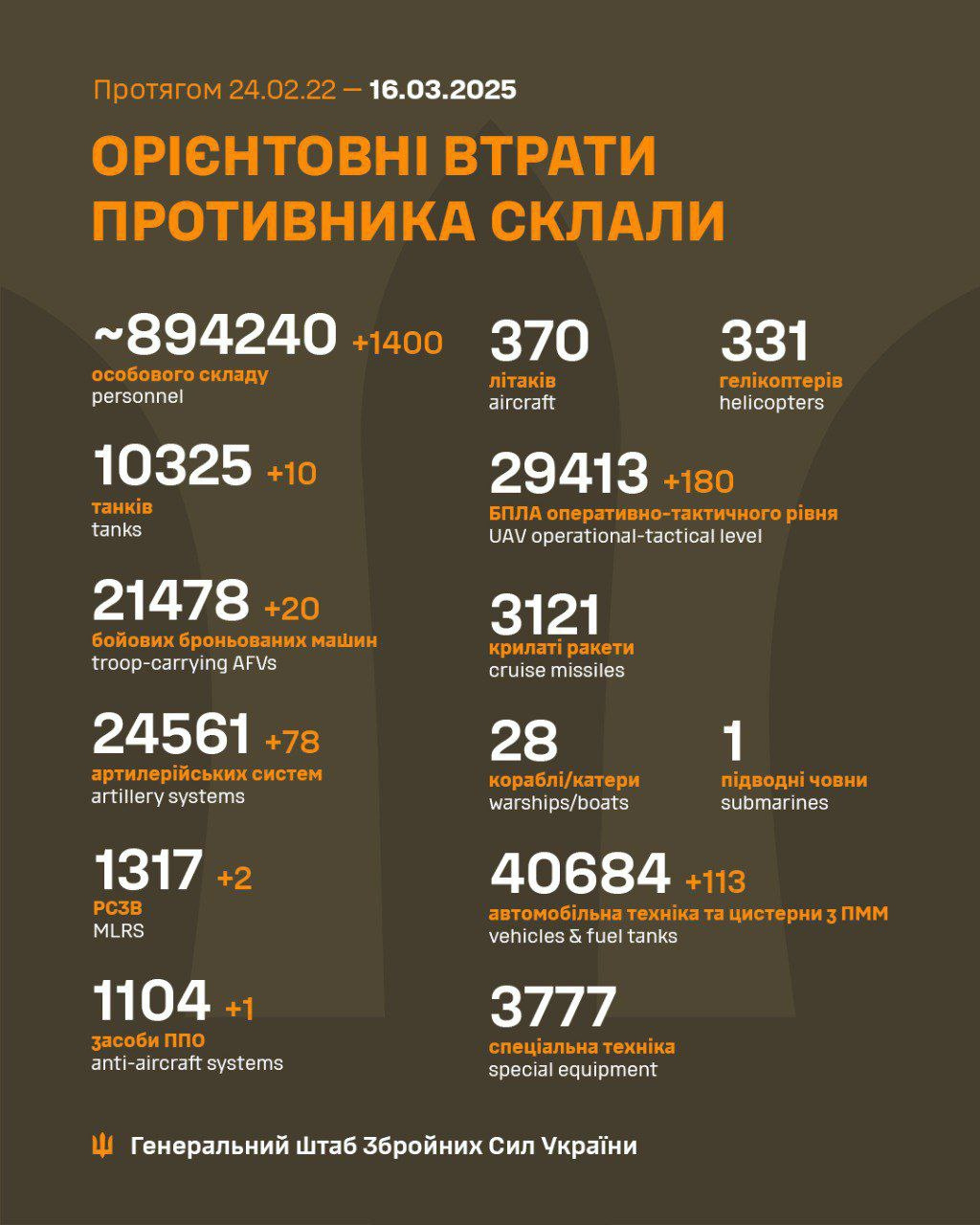
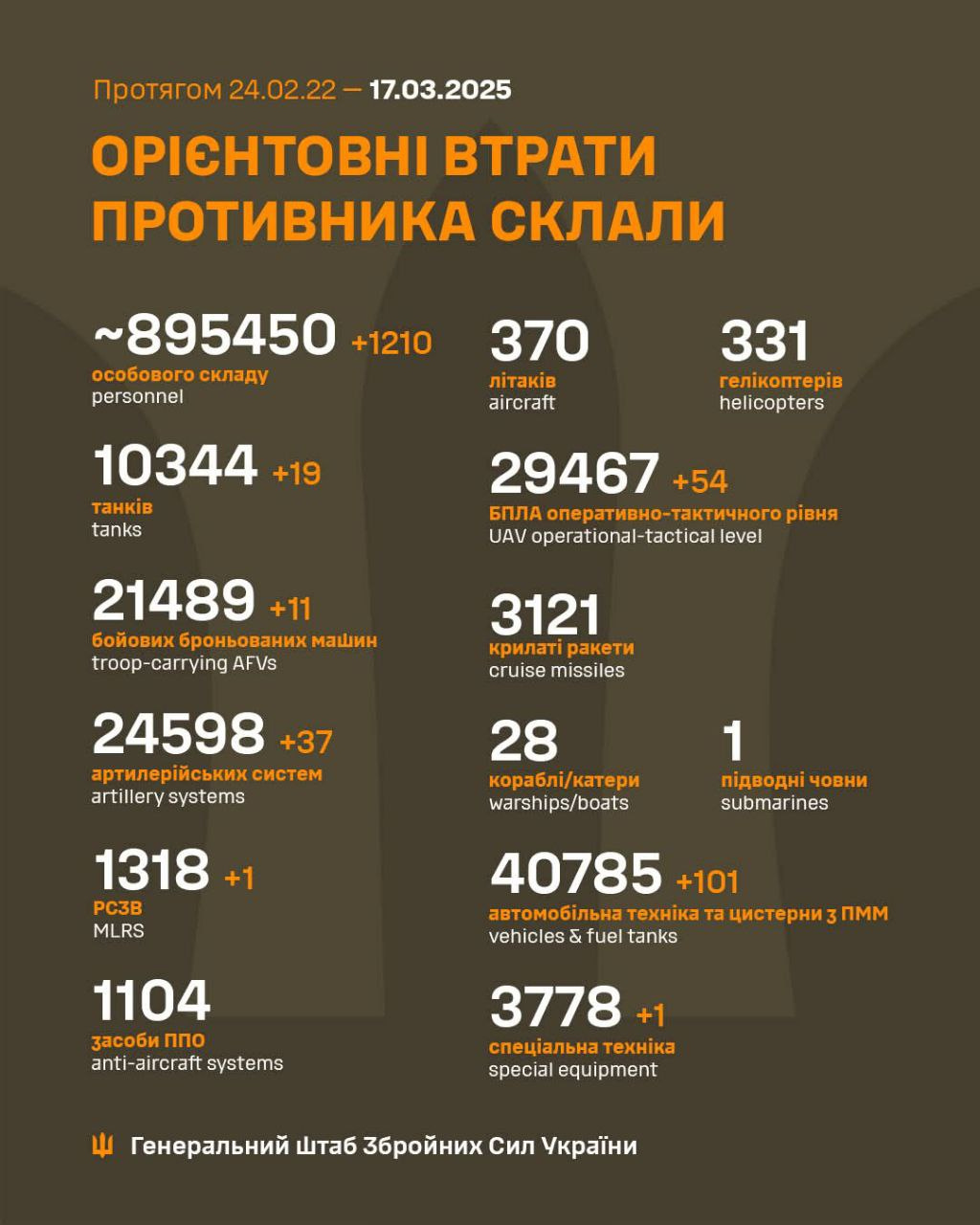
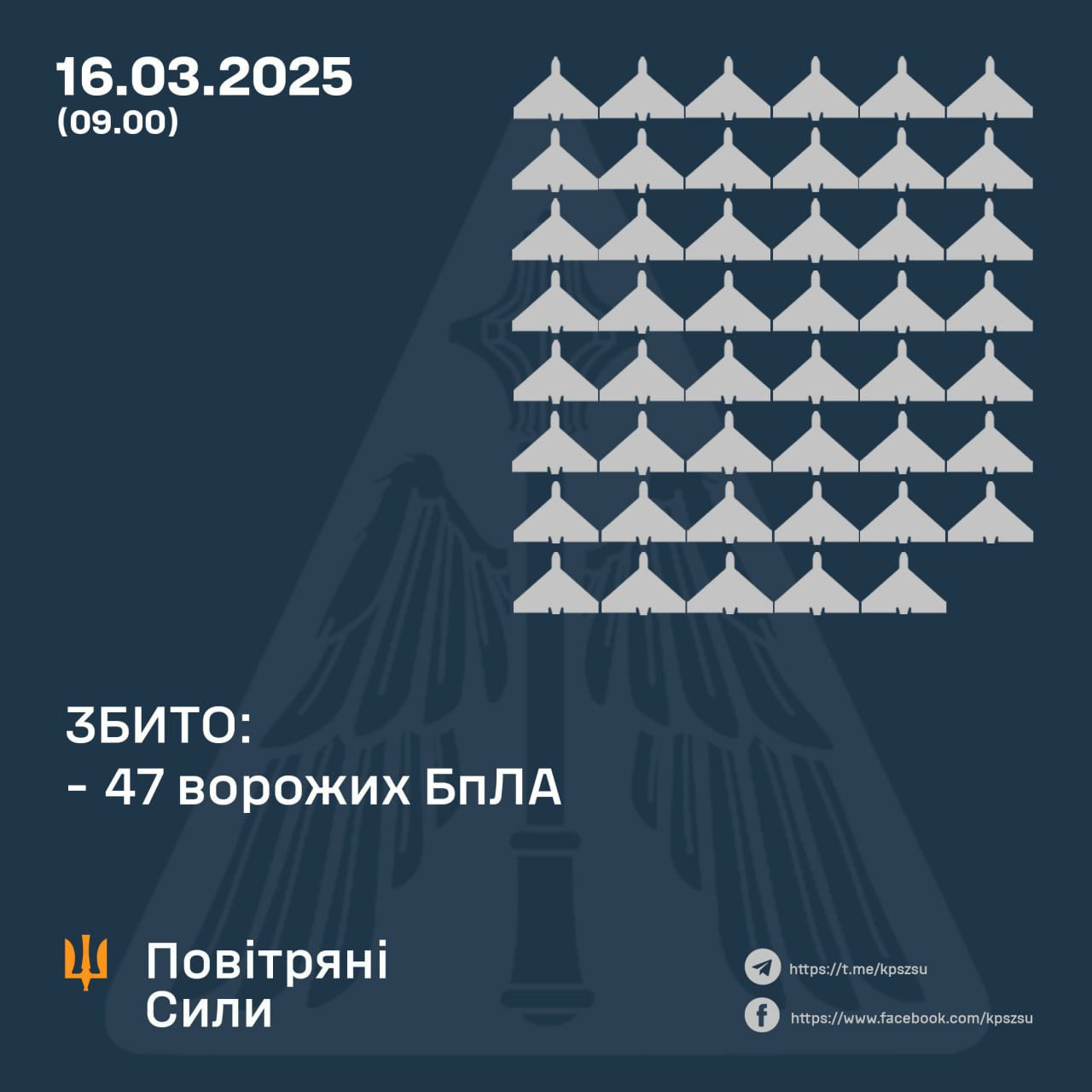
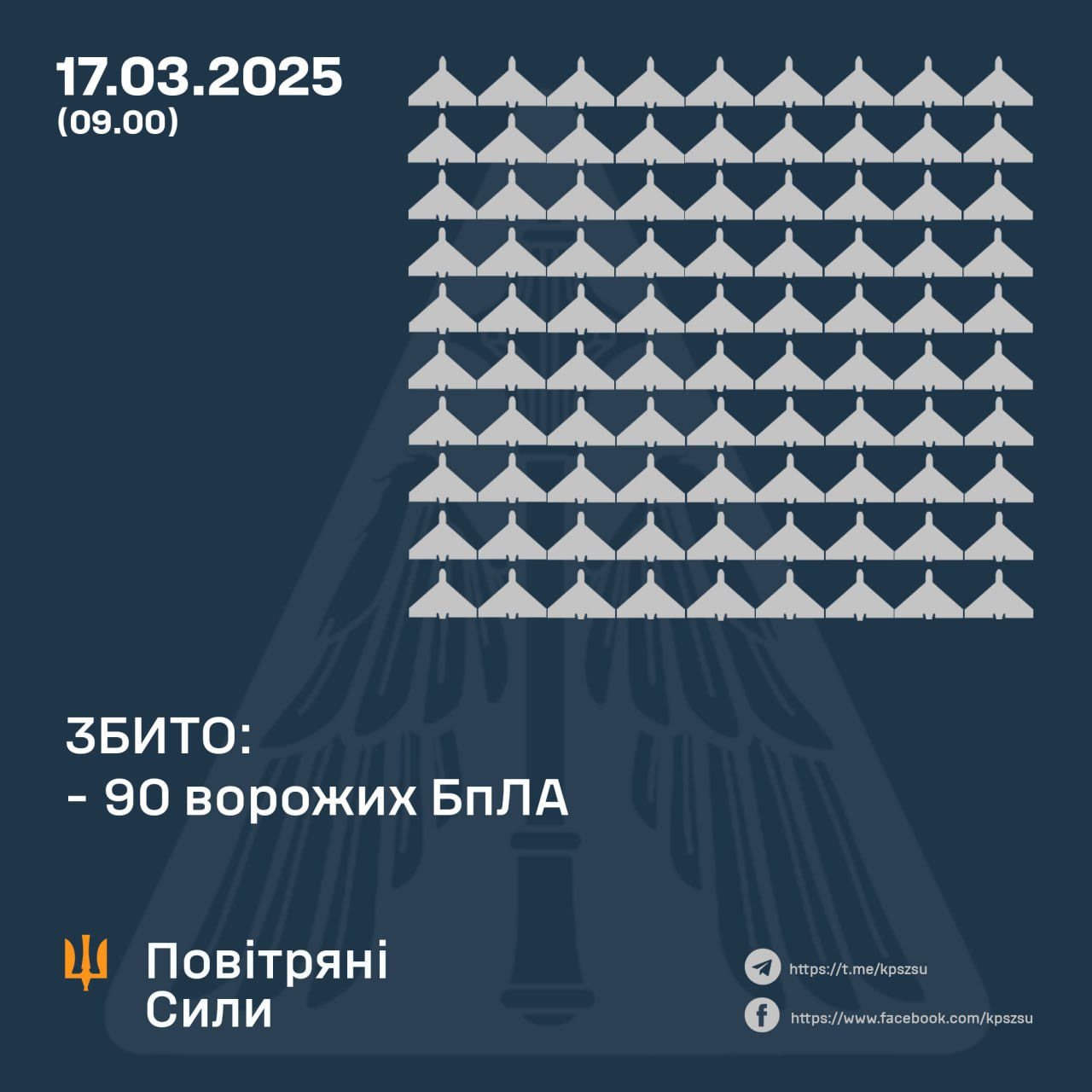
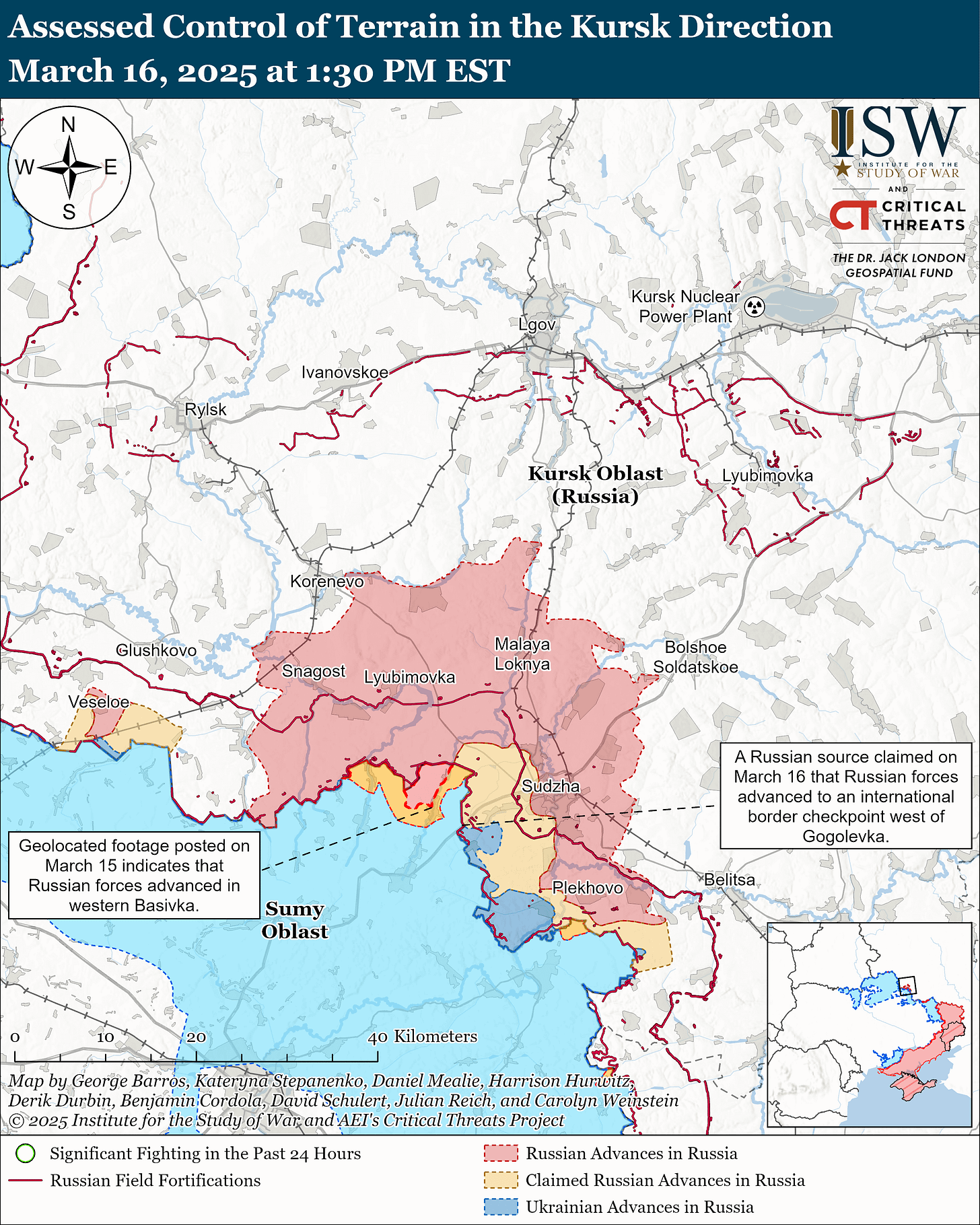
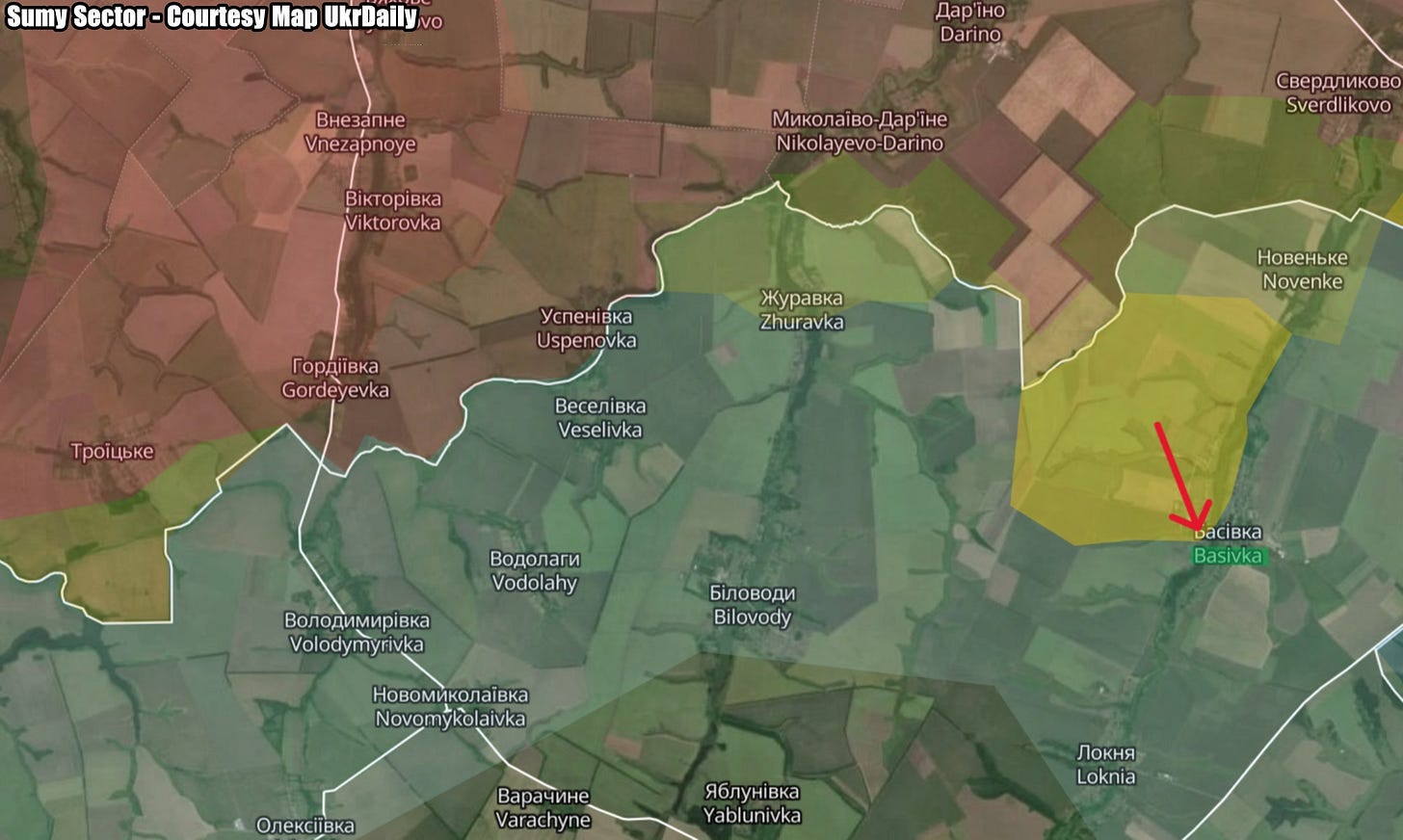
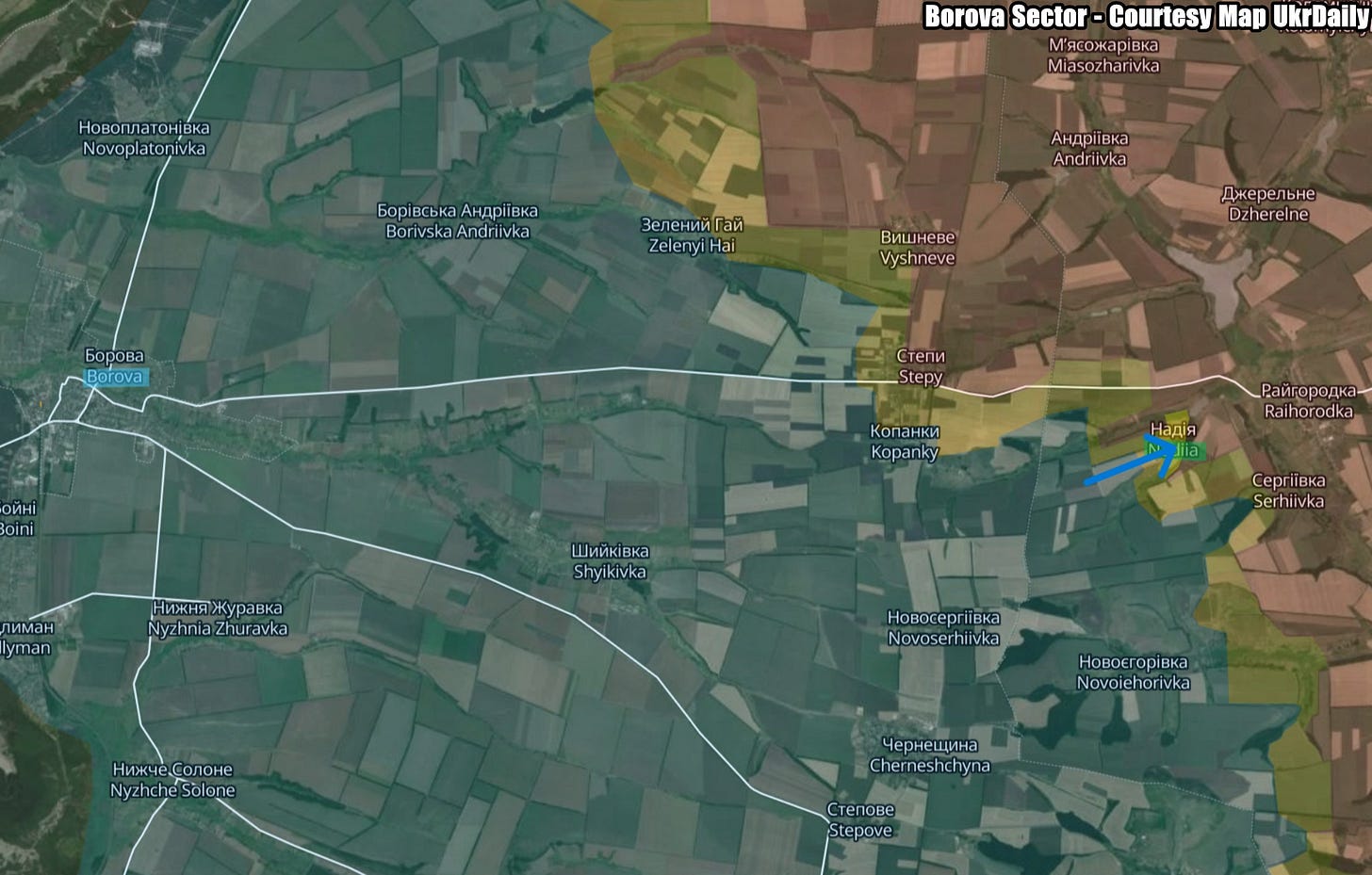
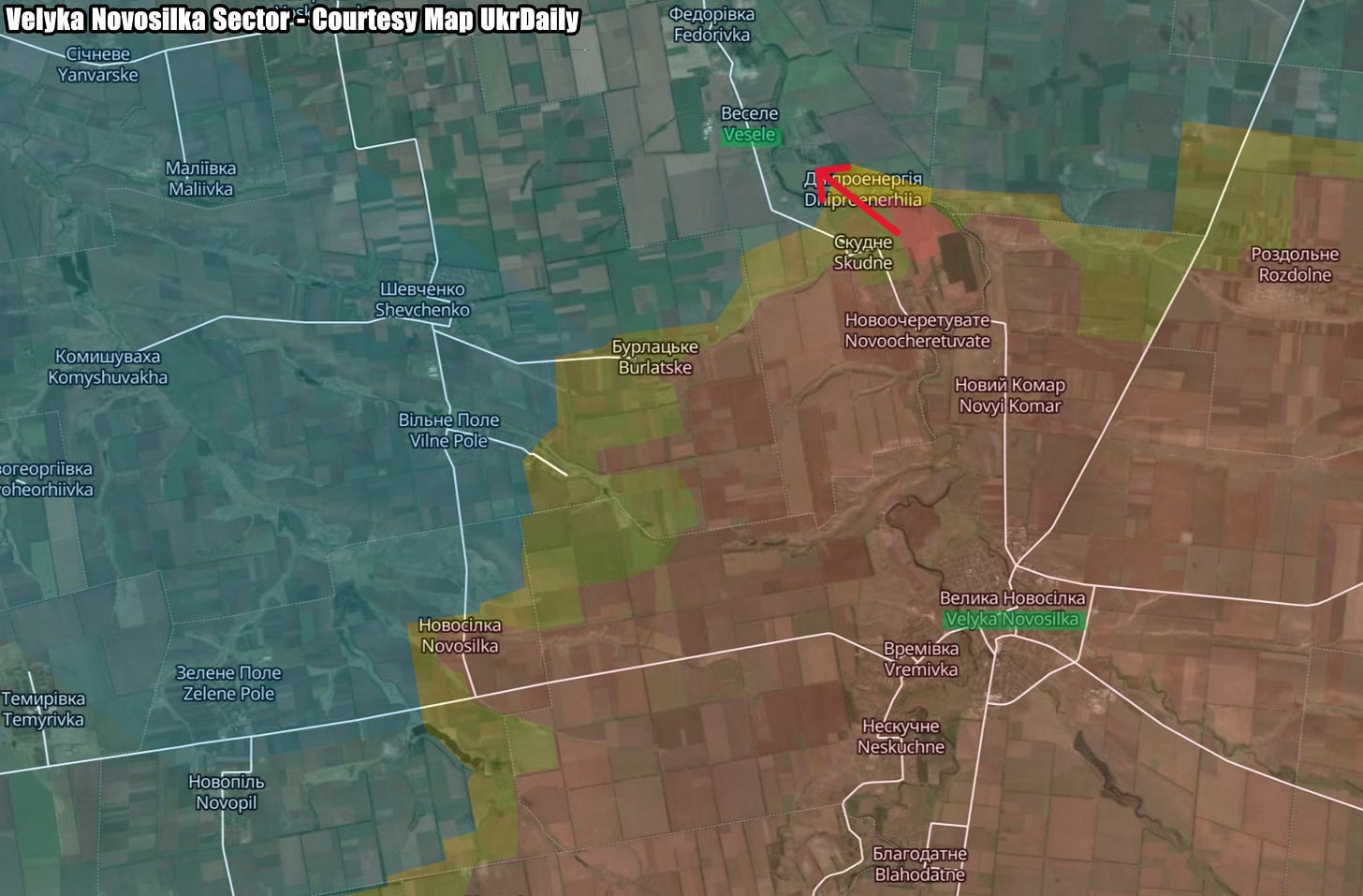

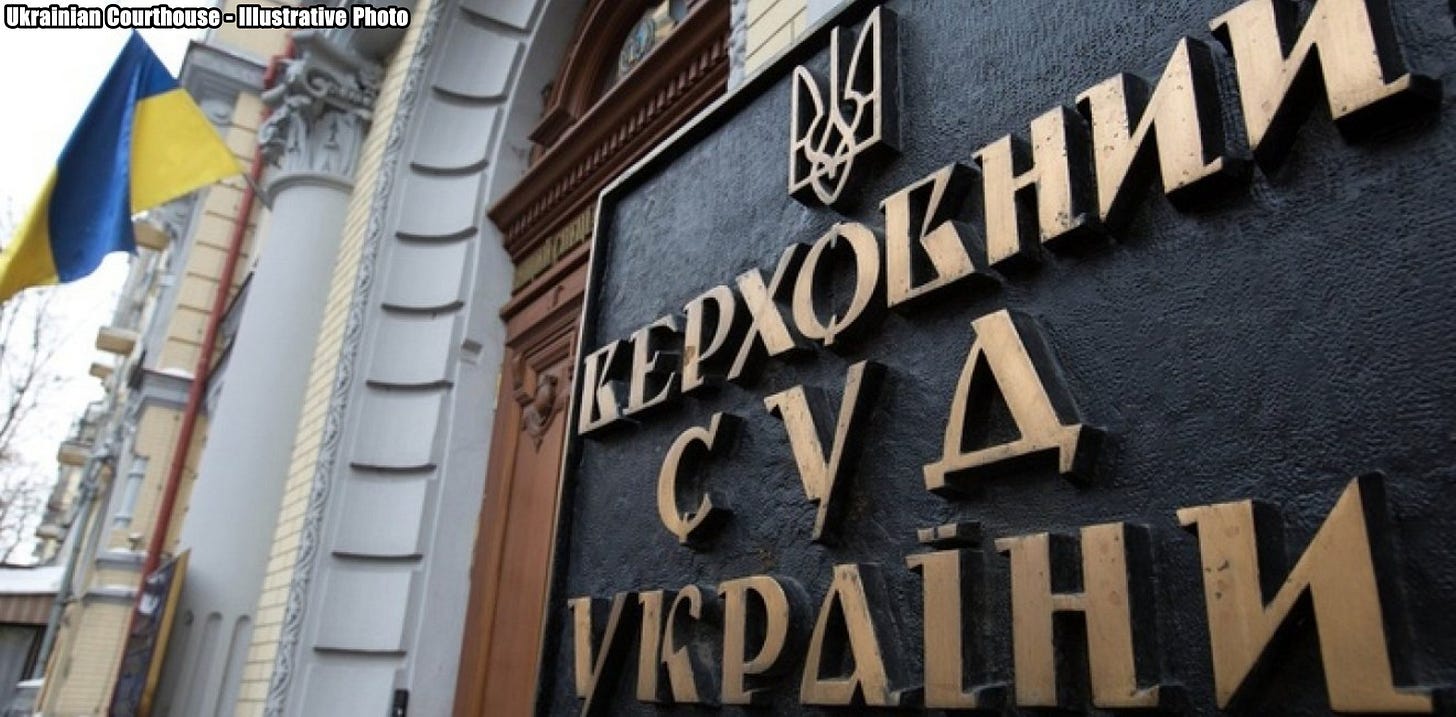

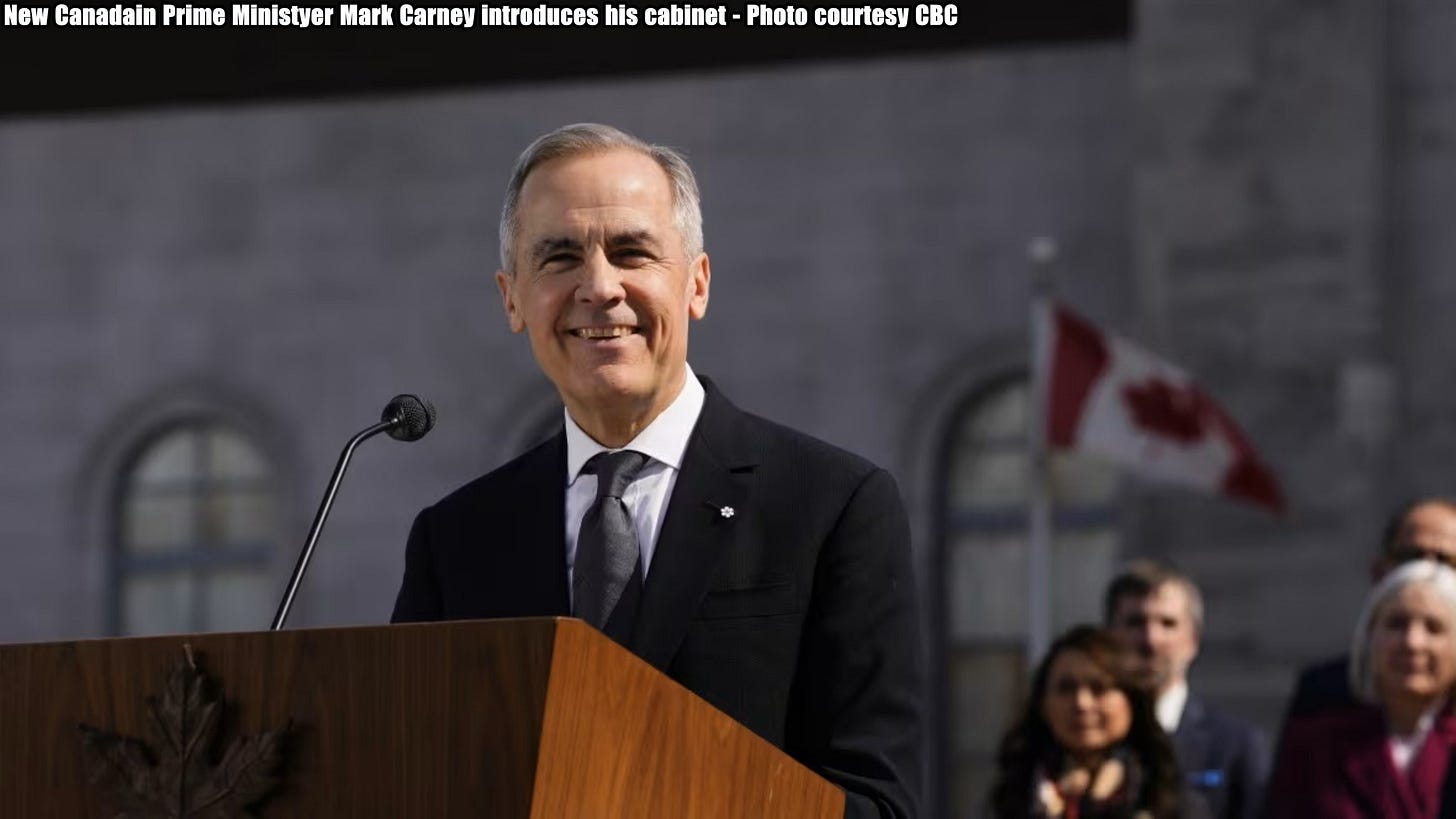
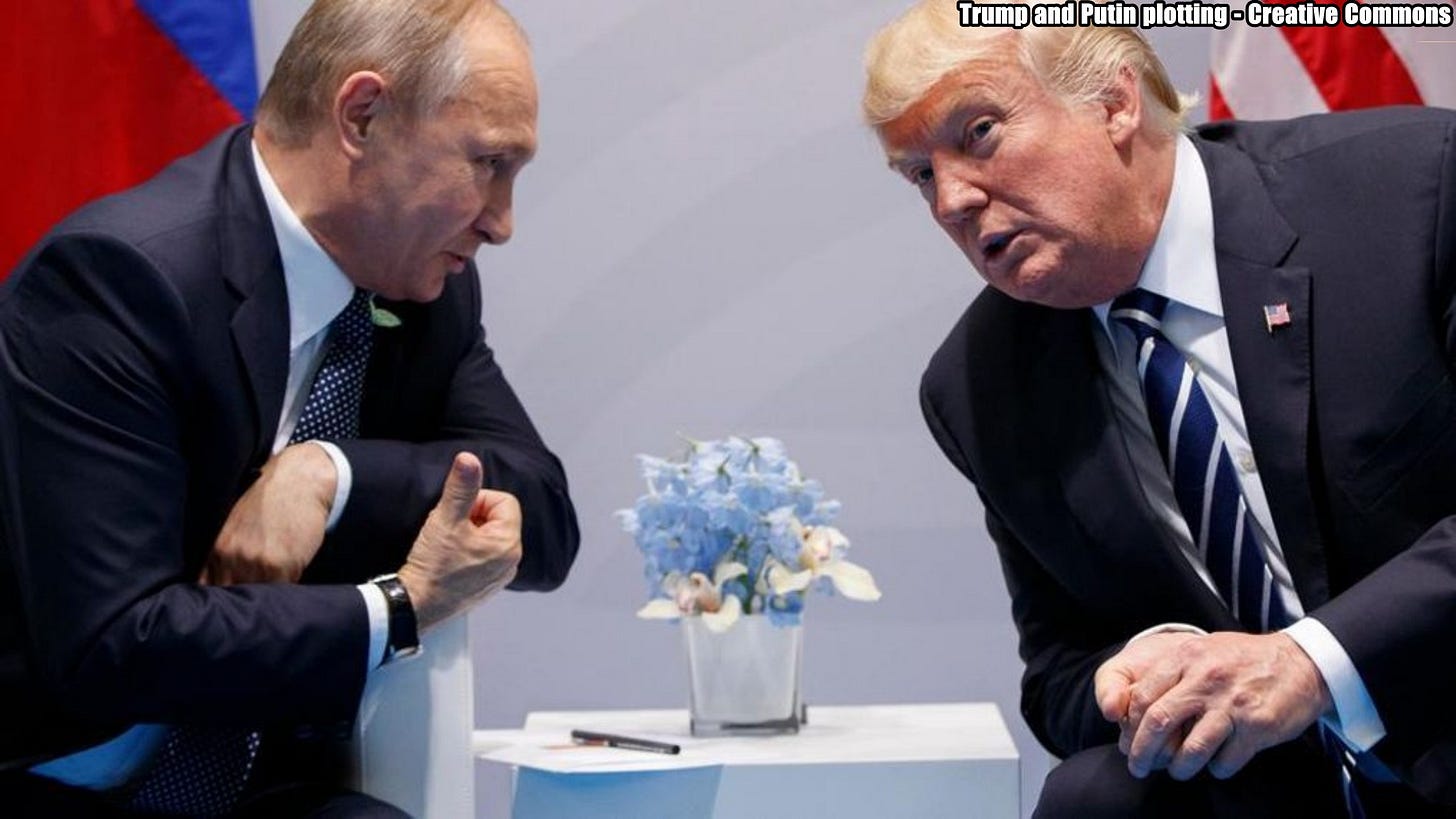
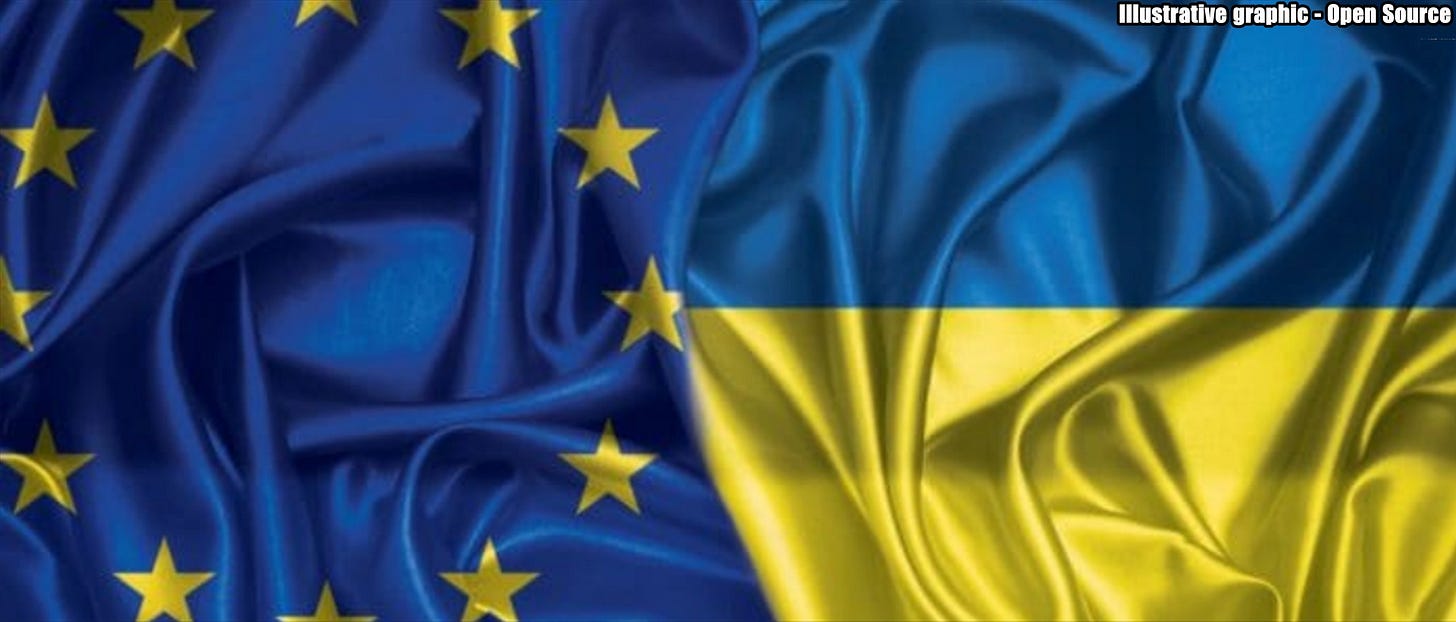
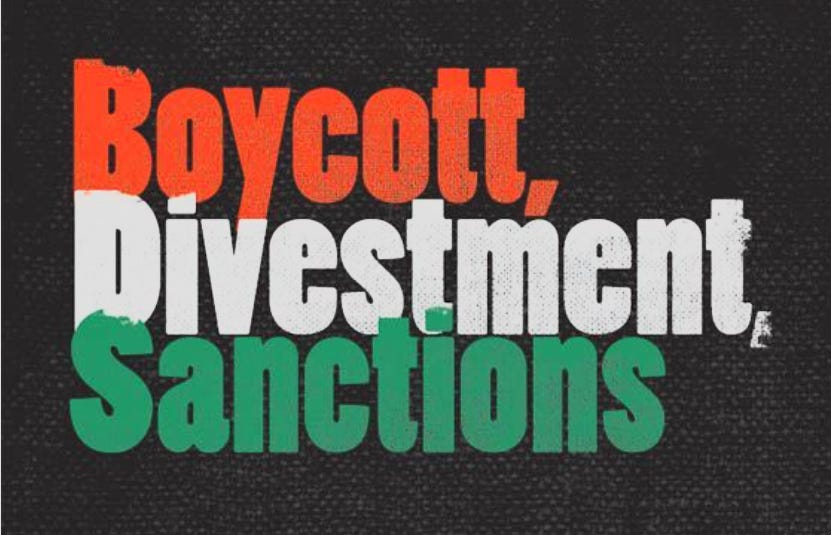
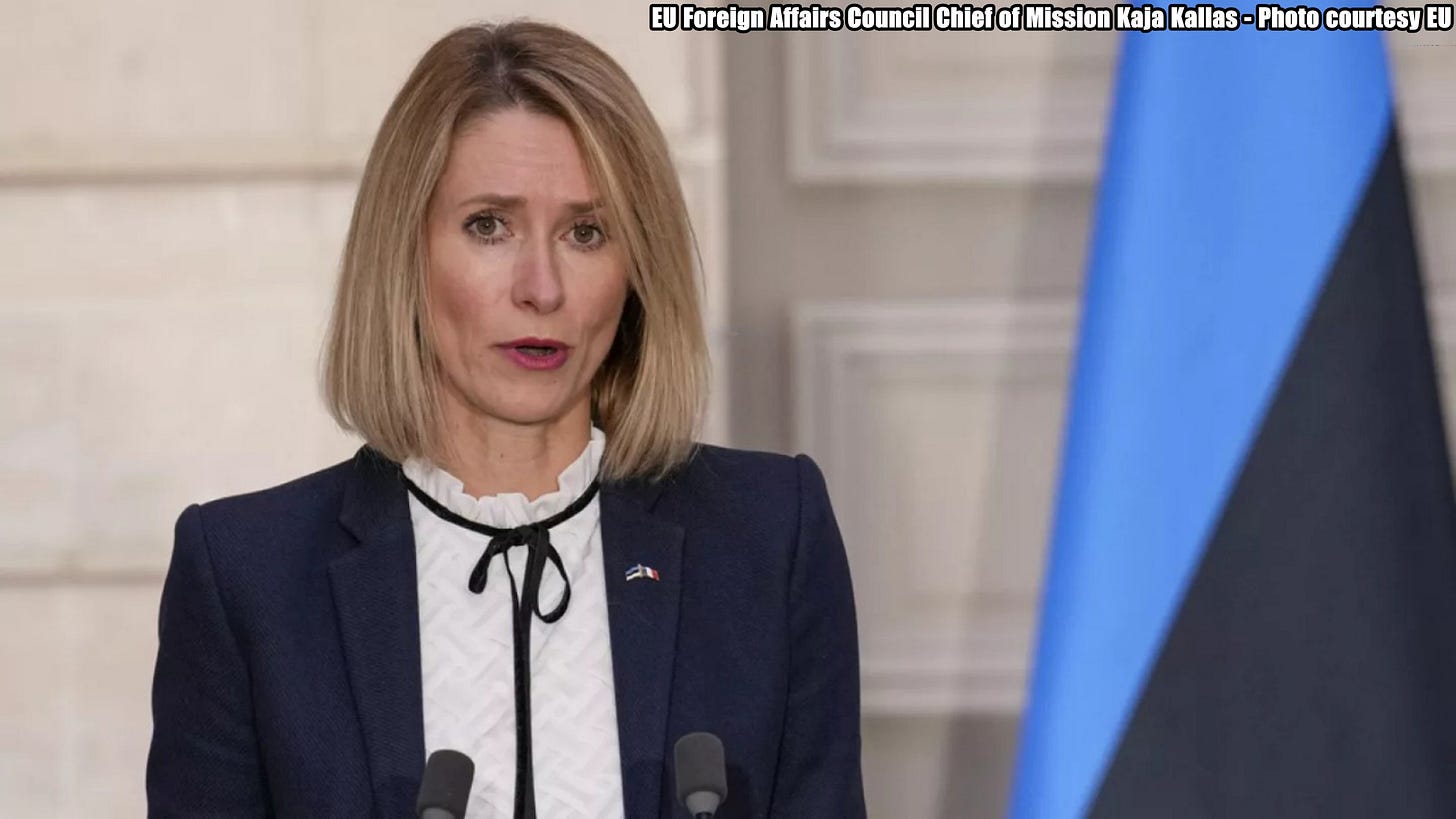
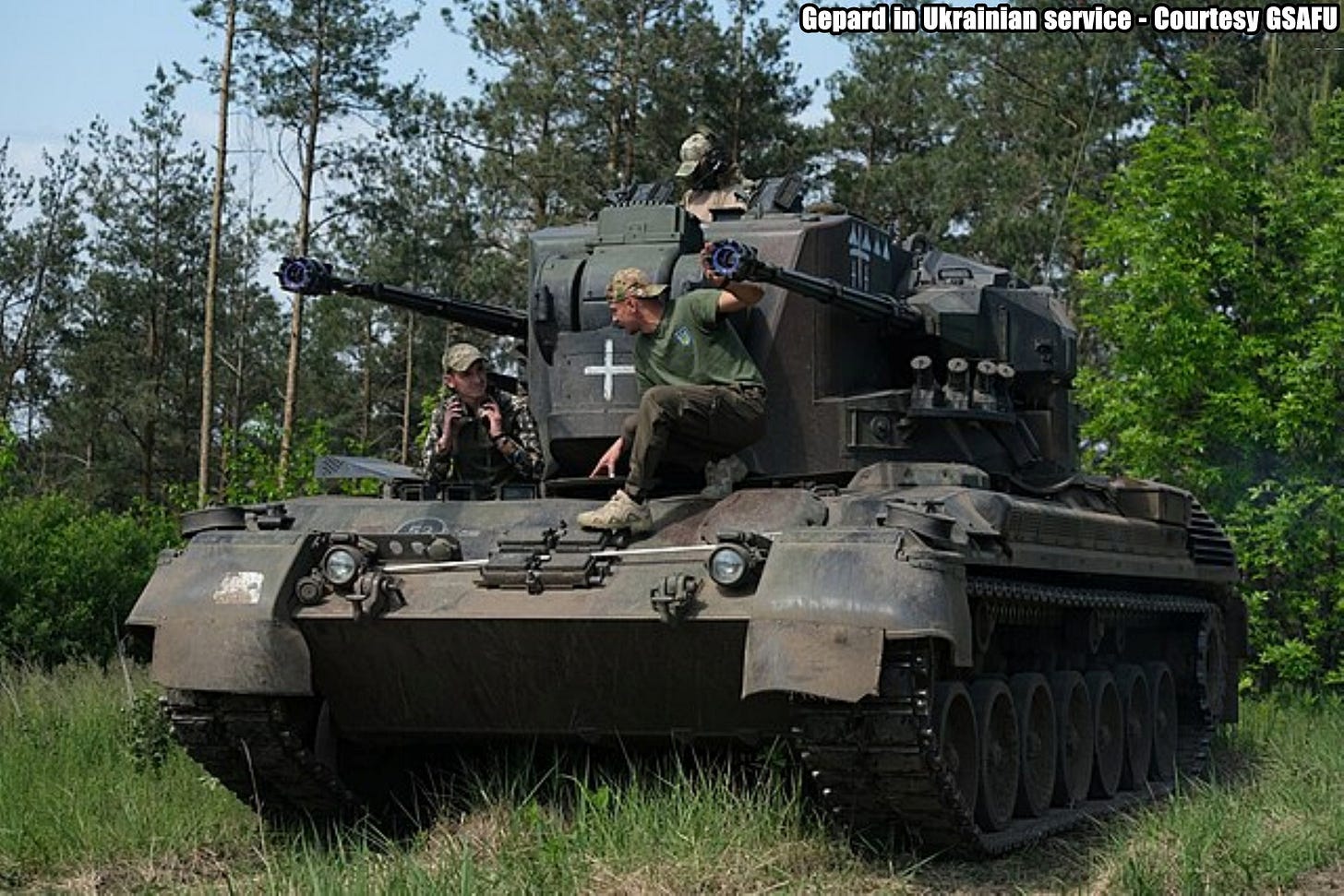
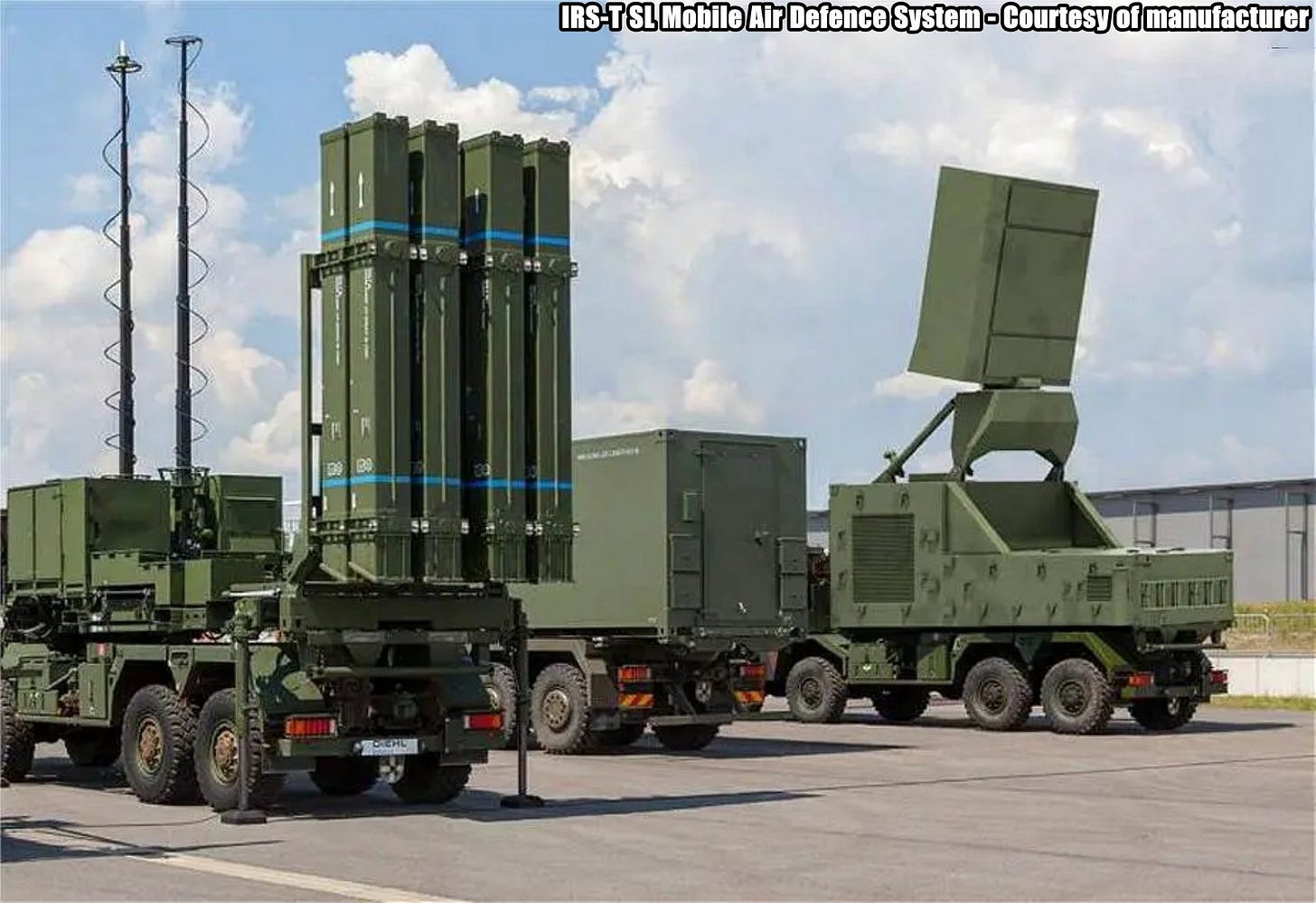
Thanks for writing, Grumpy! You join two sources I have on dailykos and global expresso for following Ukraine news.